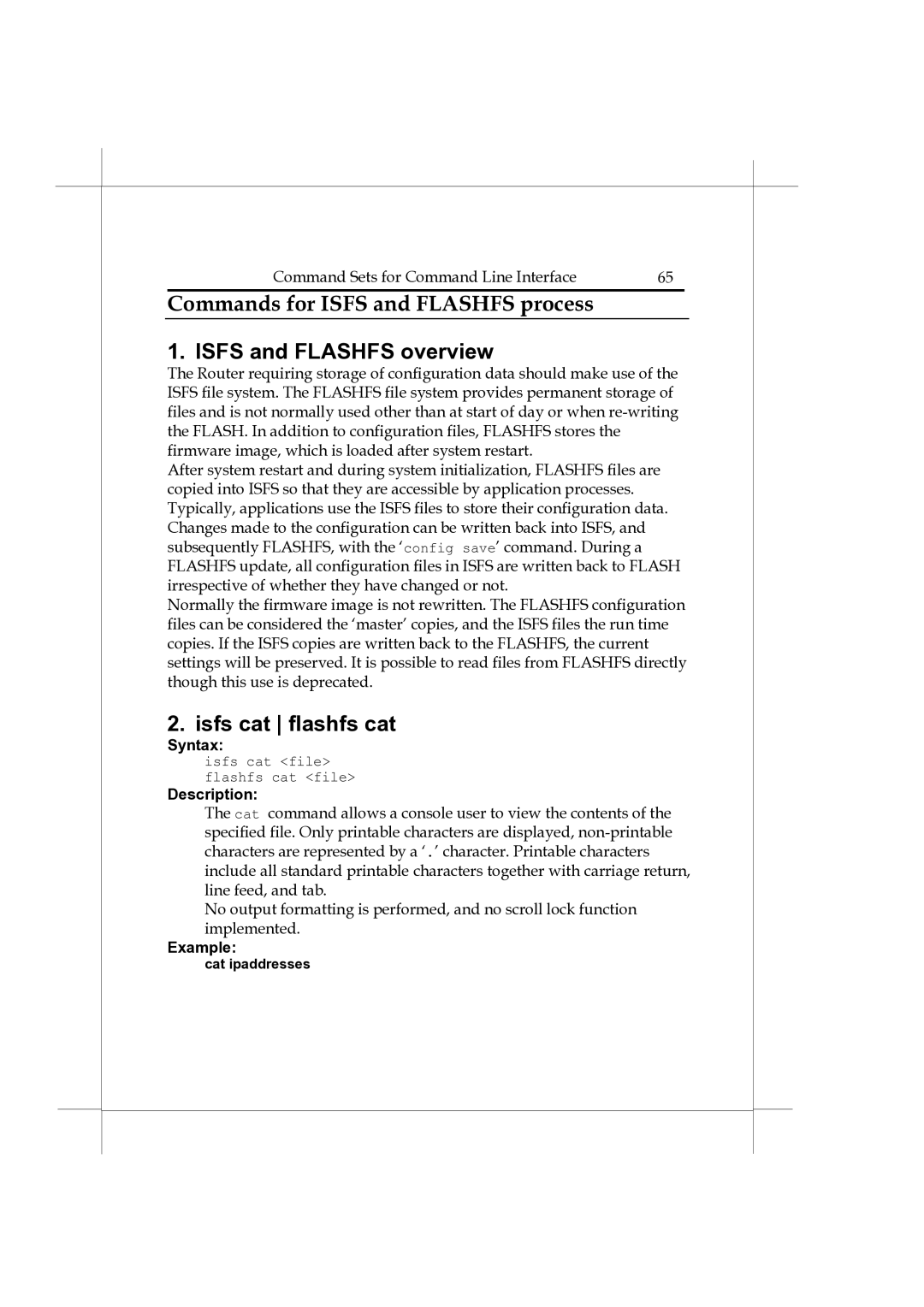
Heritage Series ADSL Bridge/ Router | 65 |
Command Sets for Command Line Interface |
Commands for ISFS and FLASHFS process
1. ISFS and FLASHFS overview
The Router requiring storage of configuration data should make use of the ISFS file system. The FLASHFS file system provides permanent storage of files and is not normally used other than at start of day or when
After system restart and during system initialization, FLASHFS files are copied into ISFS so that they are accessible by application processes. Typically, applications use the ISFS files to store their configuration data. Changes made to the configuration can be written back into ISFS, and subsequently FLASHFS, with the ‘config save’ command. During a FLASHFS update, all configuration files in ISFS are written back to FLASH irrespective of whether they have changed or not.
Normally the firmware image is not rewritten. The FLASHFS configuration files can be considered the ‘master’ copies, and the ISFS files the run time copies. If the ISFS copies are written back to the FLASHFS, the current settings will be preserved. It is possible to read files from FLASHFS directly though this use is deprecated.
2. isfs cat flashfs cat
Syntax:
isfs cat <file> flashfs cat <file>
Description:
The cat command allows a console user to view the contents of the specified file. Only printable characters are displayed,
No output formatting is performed, and no scroll lock function implemented.
Example:
cat ipaddresses
